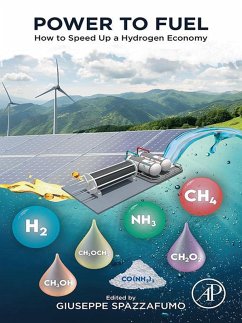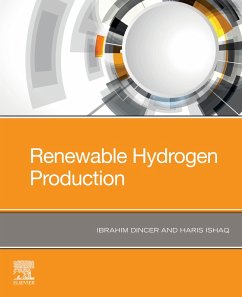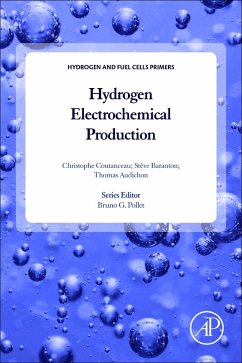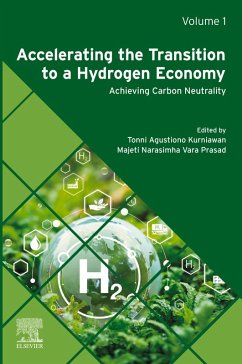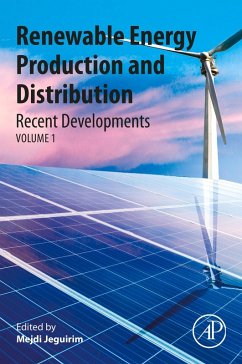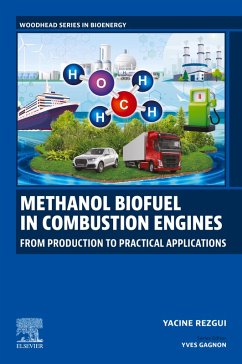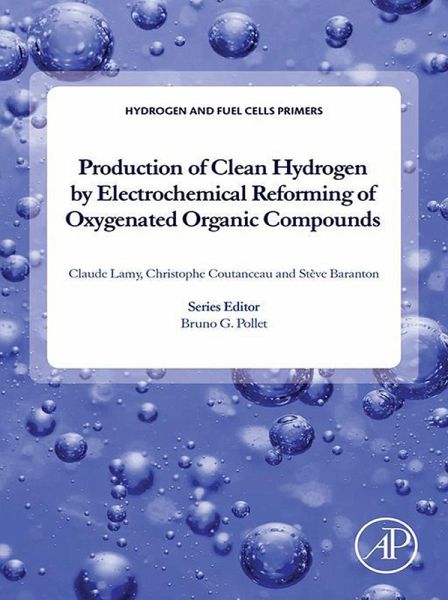
Production of Clean Hydrogen by Electrochemical Reforming of Oxygenated Organic Compounds (eBook, ePUB)
Versandkostenfrei!
Sofort per Download lieferbar
124,95 €
inkl. MwSt.
Weitere Ausgaben:

PAYBACK Punkte
62 °P sammeln!
Production of Clean Hydrogen by Electrochemical Reforming of Oxygenated Organic Compounds provides a comprehensive overview of the thermodynamics and experimental results that allow the decomposition process of organic compounds leading to hydrogen to be carried out at working cell voltages much lower than those encountered in water electrolysis. The authors review different methods of synthesis and characterization of the catalysts needed to activate the electro-oxidation reaction and describe different electrolysis experiments that produce hydrogen in a Proton Exchange Membrane Electrolysis ...
Production of Clean Hydrogen by Electrochemical Reforming of Oxygenated Organic Compounds provides a comprehensive overview of the thermodynamics and experimental results that allow the decomposition process of organic compounds leading to hydrogen to be carried out at working cell voltages much lower than those encountered in water electrolysis. The authors review different methods of synthesis and characterization of the catalysts needed to activate the electro-oxidation reaction and describe different electrolysis experiments that produce hydrogen in a Proton Exchange Membrane Electrolysis Cell (PEMEC). Other sections investigate the effect of the nature of the reactive molecules, the nature and structure of the catalysts, and more. By exploring the link between organic oxidation/conversion to hydrogen production, this book fills a gap in the existing literature and provides researchers in the field with an authoritative and comprehensive reference they can use when developing new sustainable processes and systems for hydrogen production. - Explores, in detail, the decomposition process of organic compounds leading to hydrogen - Presents foundational information, practical insights and pathways for future work in the development of proton exchange membrane electrolysis cell systems - Includes results, experimental data and interpretations using different organic compounds, such as methanol, formic acid, ethanol, glycerol and biomass
Dieser Download kann aus rechtlichen Gründen nur mit Rechnungsadresse in A, B, BG, CY, CZ, D, DK, EW, E, FIN, F, GR, HR, H, IRL, I, LT, L, LR, M, NL, PL, P, R, S, SLO, SK ausgeliefert werden.




